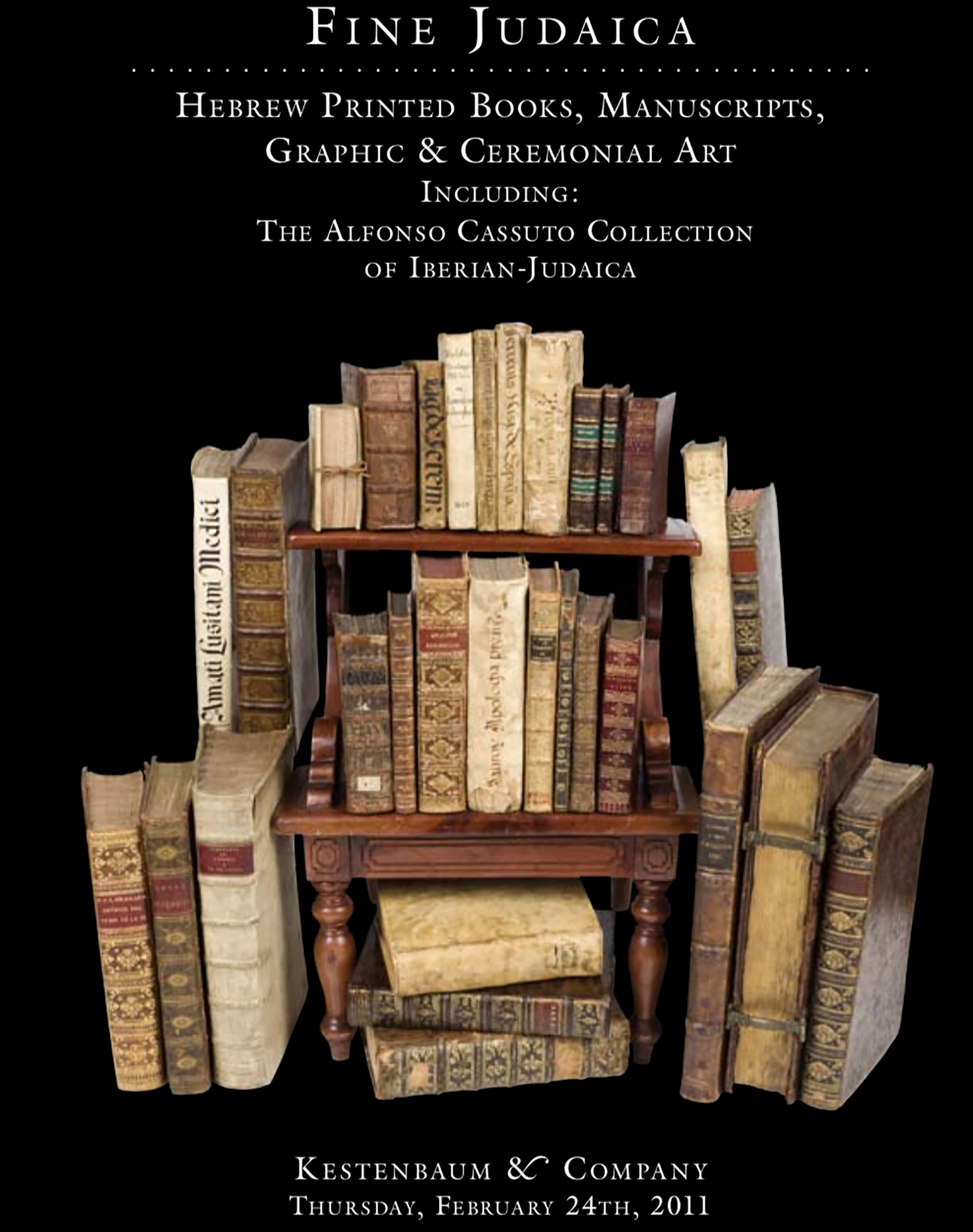Fortalitium Fidei ["Fortress of the Faith": arguments against those inimical to Christianity]

AUCTION 50 |
Thursday, February 24th,
2011 at 1:00
Fine Judaica: Hebrew Printed Books, Manuscripts, Graphic & Ceremonial Art Including: The Alfonso Cassuto Collection of Iberian Art
Lot 340
SPINA, ALPHONSO DE.
Fortalitium Fidei ["Fortress of the Faith": arguments against those inimical to Christianity]
Nürnberg: Anton Koberger 6 October, 1485
Est: $6,000 - $9,000
PRICE REALIZED $10,000
Fortalitium Fidei is a rabidly anti-Semitic work attributed to Alphonso de Espina. Though written in 1457 and first printed in Strasburg circa 1470, the author continued to make additions to the work until 1485. Thus, our 1485 edition is the first complete edition.
The work is a collection of arguments prepared for use by preachers against detractors of Christianity, Divided into five parts, each parts targets a specific adversary:
Book I: Introduction (ff.i, r.–xxvi, v). Book II: Contra heretics (ff.xxvi, v.–xli, v). Book III: Contra Jews (ff.xli, v.–xcix, r). Book IV: Contra Saracens [i.e., Muslims] (ff.xcix, v.–cxliiii, v). Book V: contra demons (ff.cxliiii, v.–cliiii, v).
Book Three, the largest part of the Fortalitium is devoted to attacking Jews and Judaism, including the then centuries-old accusation of Blood Libel. In Book Three, Prof. Netanyahu found valuable material from the Inquiry (pesquisa) conducted against the Conversos in Toledo in 1449, whereby they were accused by Christian witnesses of outrageous deeds - including idol worship. See B. Netanyahu, The Origins of the Inquisition in Fifteenth Century Spain (1995), pp. 362-3.
Alphonso de Espina was regent of the theological studium of the Franciscans at the University of Salamanca, head of the Franciscan Observants in Spain and Confessor of King Enrique IV of Castile. Long thought to be a convert from Judaism, according to modern scholarship Alphonso de Espina was not a converso but an Old Christian. Espina was responsible for the relentless hounding of those Spanish Jews who had converted to Christianity and an early proponent of the establishment of the Inquisition in Spain. To quote Henry Charles Lea, historian of the Inquisition, "To Fray Alonso de Espina may be ascribed a large share in hastening the development of organized persecution in Spain" (Lea, A History of the Inquisition of Spain [1906], Vol. I, p.148). Fortalitium is "the first Spanish work that proposed the establishment of an inquisition against the Conversos in Castile" (Netanyahu, op. cit., p. 817).
See S. J. McMichael, Alphonso de Espina's Argument against the Jews in the Fortalitium Fidei (1994); B. Netanyahu, The Origins of the Inquisition in Fifteenth Century Spain, pp. 726-35; 814-47; idem, Alonso de Espina: Was He a New Christian? in: PAAJR, Vol. XLIII (1976)
